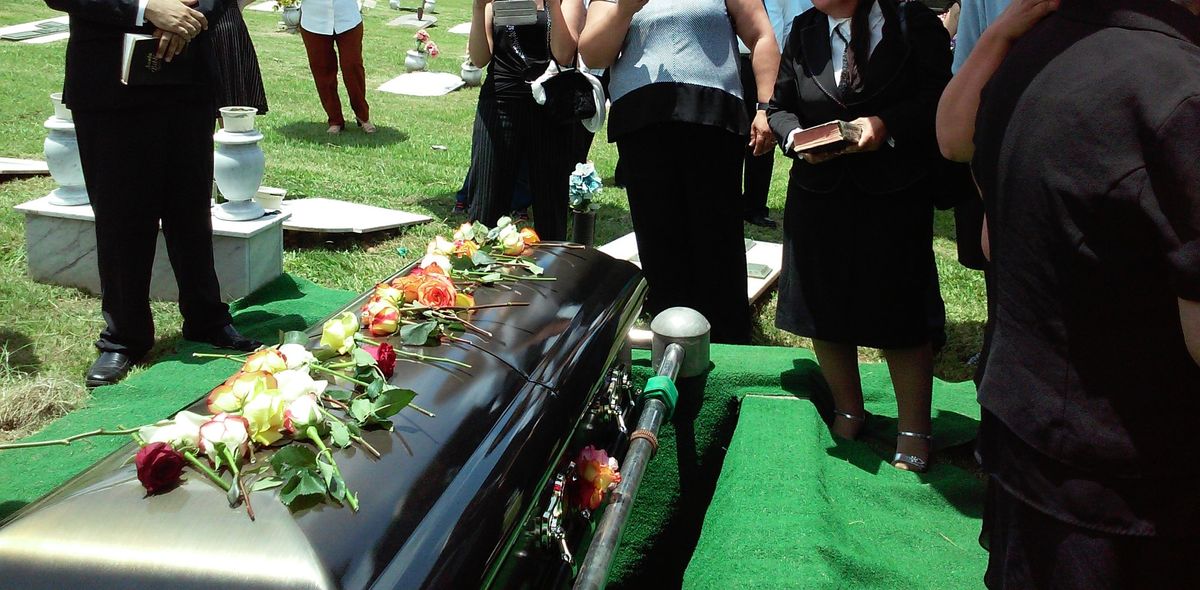Cremation Isn't the Only Option to a Traditional Burial

Cremation has rapidly become the most popular choice of American families, now accounting for more than half of funeral services each year. It’s less expensive and, in most cases, simpler to arrange. Cremation also does away with the “viewing” of the deceased that many now find distasteful.
Contrary to what you may believe, cremation doesn’t mean you can’t have a funeral or visitation. While memorial services are becoming more popular, many families still choose a somewhat traditional funeral, substituting an urn for the coffin.
Ashes can be buried in cemeteries, interred in vaults, divided up among relatives in jewelry or small urns and, of course, scattered. Be sure to check local laws before scattering remains. It’s illegal in many places and some people find the ashes — which are really more like ground-up bones — unpleasant.
Neptune Society One of the oldest and largest provider of cremation services, Neptune has been in business for nearly 40 years. “We offer personalized, reliable, and affordable solutions for end-of-life needs. Some of our competitors offer cut-rate services, but may not have Neptune Society’s reliability and diligence,” the company says. More information.
Tulip A “full-service” cremation company, Tulip will collect your remains, handle the paperwork, conduct a private cremation and return your ashes to your family in a simple container. Prices start around $600. Tulip currently operates in parts of California, Illinois, Texas and Washington. More information.
Green Burial
It wasn’t long ago that what this was the normal method of burying the dead. The body is buried without the use of chemicals, concrete vaults or steel coffins. There may be a wooden coffin or simply a shroud, or nothing at all. Our bodies came from the earth and, through green burial, they are returned there. Most green — or “natural” — cemeteries emphasize an uncluttered look that enhances the natural surroundings rather than cluttering them with monuments and other structures.
Cool Spring Natural Cemetery at Holy Cross Abbey in Northern Virginia is an outstanding example. Maintained by the Abbey’s Cistercian monks, the beautifully maintained grounds symbolize “the sacredness of all life and the dignity of the human person.” Although consecrated as a Roman Catholic Cemetery, Cool Spring welcomes people of all faiths.
As more people learn about it, green burial is becoming more popular but you may have to do a little research to find facilities in your area. There’s a list of green burial cemeteries on the Green Burial Council’s website.
Composting
Composting is as old as the earth but is only now beginning to emerge as an approved method of returning humans to the earth after their death. It became legal in Washington State in May 2020 and its backers hope to expand to other states as the process proves itself.
The main attraction of composting human remains is that it is perhaps the most environmentally friendly option. As outlined in a patent-pending process developed by Recompose, a Seattle-based company, it uses no artificial chemicals, produces no harmful waste products and does not require long-term real estate. It is expected to be a bit more expensive than a simple cremation but more affordable than a traditional funeral.
For more, see Composting the latest alternative to traditional burial.
Whole Body Donation
Whole body donation is perhaps the best solution for those who want to do one last good deed. By donating your body to science, you support the training of new physicians and help advance medical research. It’s also the most economical. In fact, it’s nearly always free and usually includes cremation when the students have finished working with your remains.
ScienceCare is the world’s largest accredited whole body donation program, ScienceCare works with medical schools, research hospitals and medical device companies to help support the training of physicians and surgeons and to assist with the development of new medical products, procedures and treatments. It is a no-cost solution for those who want to make a last — and lasting — contribution to society. More information.
